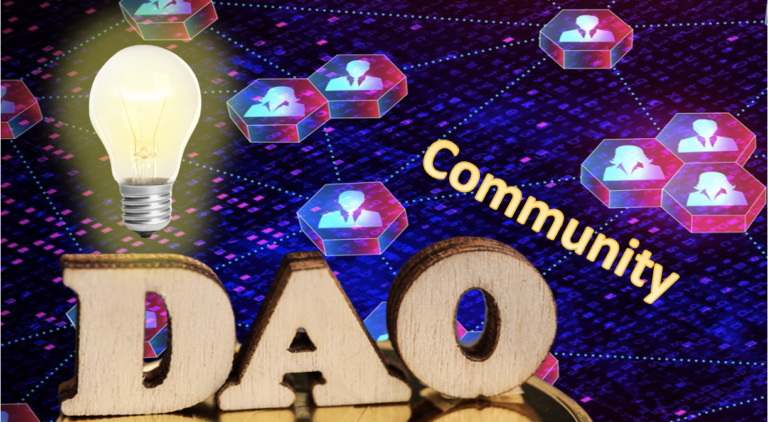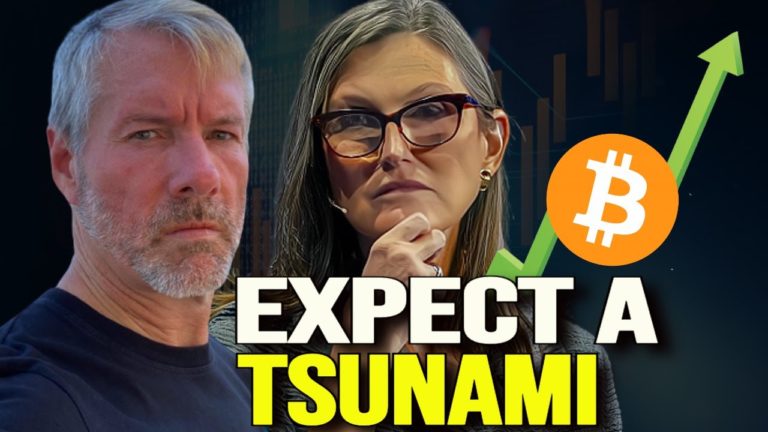The reclamation of our sovereign future will depend upon how we assimilate blockchain technology into our lives. We are at an epochal crossroads. The future has never looked brighter or bleaker depending upon which road we take. The first road is mired in authoritarian control, surveillance, and clandestine persuasion; the other is a road full of hope, democracy through cryptocurrency, a chance to reclaim our voices from an overbearing technocracy and financial system where the everyday person struggles just to keep things afloat.
Those of us who have been introduced to cryptocurrency may already have such hope in how crypto can reshape the future. But a better future is not a given. There are forces at work capable of ceding power to the centralized conglomerates crypto has promised to free us from. Here, we’ll investigate what’s at stake, what’s behind the governance of blockchains, and how we should evaluate cryptocurrencies in relationship to the future that they may bring upon us.
Back in the mid-1990s, there was the internet gold rush, leading to the internet financial bubble, which eventually burst. Despite the collapse in valuations of internet stocks at the start of the new millennium, new companies like Google, Amazon, and Facebook emerged with extraordinary amounts of wealth and power enabled by internet technology itself. For example, Microsoft gave away its internet browser for free and crushed innovative competitors like Netscape, who couldn’t effectively compete with Microsoft, the corporate behemoth, who controlled the entire gateway to the internet with its Windows desktop.
I mention this brief history because at this time, the cypherpunks—who were the champions of an open-source internet for the people, held on to the hope of what the internet could be. They wanted the internet itself to rebalance power so that everyone could have a voice and our civil liberties could be protected. But instead, corporations ushered in an information age that has come at a massive price to our individuality. We are now living in the grip of surveillance capitalism.
What’s at stake is our ability to choose for ourselves, to retain our own minds in our decision-making, and still allow our genuine voices to be heard. Right now, our voices and thoughts are muffled and transformed through algorithmic news feeds on social media, search engines, video streams—which all cater to a hidden nefarious agenda. An unspoken agenda led by corporate profits or self-interesting nations using data collection, artificial intelligence, and social engineering to manipulate our choices.
And what is at the core of that agenda?
It is the attraction of attention in any way, shape, or form to captivate our senses and record our behaviors. Services like Alexa, Siri, Cortana, Watson, our browsers, search engines, every click, every keystroke, the apps we use on smartphones, face recognition scans, webcams—are the many forms of invasive technologies surrounding us that enable centralized corporations and nations to profit from our activity. In this internet economy of surveillance capitalism, we are the products. Big tech (and countries too) collect, store, examine, and process our data to optimize what they learn about us: measuring our reactions, our political beliefs, our tendencies, desires, ambitions, hopes, peeves—all this information is gathered together, and by way of these datasets, we’re sold on the open digital market like cattle. Essentially, they round up the psychological profiles of everyone that uses their services. Our information is their most valuable commodity. And we agree to this every time we click yes to the lengthy terms and conditions we sign (just to catch a glimpse of a cool app or download the latest software).
Our individual sovereignty is at stake. And with the advancement of artificial intelligence, cloud computing, and greater methods of invasive digital surveillance, the trend is growing at an exponential rate. The entire internet is becoming a stimulus-response mechanism where advertising bots or new feeds set up primers for our minds; like a digital chess game played by supercomputers profiting off of our tendencies.
Does this seem far-fetched?
It is real and happening right now. Consider this—Watson, an Artificial Intelligence designed by IBM, defeated Ken Jennings in Jeopardy in 2011. In 2016, an AI designed by Google defeated a champion in the game of Go—this is a game requiring enormous imaginative skill, a game once thought to be too complex for machine learning to defeat. Artificial intelligence has become the better problem solver in many situations, and it is outpacing even the smartest of us in human brainpower. Once our data is collected and stored, these systems can analyze the data, automate primers (which are essentially ways to lay the foundation in our minds to later help lead us to certain behaviors). Thus, the technology itself is becoming inclined to induce actions that are conducive to the profitability of the corporation running the software. Even our political decisions could be influenced through subtle algorithms feeding us incendiary information, creating inflated passion where there was none, or having us believe in a narrative without a sound basis. In other words, our very thoughts and actions can be manipulated through the collection of our data by playing on our tendencies (known through every click of like or dislike); and we become digitally manipulated in an almost cult-like usurpation of our power.
The pace at which companies and nations are implementing artificial intelligence technology is moving faster than our government’s ability to even understand and regulate it. We the people, especially our children who are captured inside such sticky apps, are falling deeper into this digital abyss with countless hooks forever pulling at us.
Does Cryptocurrency offer a solution?
It does. But there is no guarantee of its success and the promise of individual sovereignty through cryptocurrency could even backfire, pushing us further into the grip of an artificial intelligence controlled future. Here’s why.

Cryptocurrencies and the blockchains they run upon can take on primarily two forms, decentralized blockchain and centralized blockchains (with an entire spectrum of hybrids in between). Some demarcate blockchains into public and private, but I don’t believe this encapsulates the broader concerns when it comes to governance on the internet.
Even a public blockchain (one that operates across a spectrum of nodes that are not owned and operated by any one individual or organization), can have centralized characteristics. For example, when Ethereum 2.0 is fully released, the network will be reliant upon stakers that hold 32 Ethereum to be a validator and take part in future network upgrades. Ether, at a current price of $1800, would mean that a stakeholder must have approximately $57,600 to take part in voting for the future direction of the project.
At such a price, control over the network is in the hands of stakeholders who can afford to allocate that kind of capital. They will make decisions over the future protocols and mechanisms that run the blockchain, and their decisions will be in their interest. Therefore, there is a concentration of power in the interests of the preservation and expansion of stakeholders/validators’ wealth. Even if you access staking through a pool, without 32 Ethereum, you cannot be a validator and therefore cannot vote on the future direction of the project. I don’t believe this has gotten as much attention as needed.
Who controls the protocols, controls the blockchain.
With cryptocurrency, we are talking about Web 3.0. This vision is for a democratic internet where everyone has a voice, our rights are protected, and we all have fair access to an economic system based on an equitable distribution of opportunity. We control the protocol; therefore, we control the blockchain.
In essence, blockchain technology is a new form of technology that provides database solutions. The technology itself doesn’t care how it is administered. Rather, it is merely a tool that can be set up in many ways—centralized or decentralized.
The technology running today’s internet is not democratic. It is controlled by corporations whose intention is to please shareholders (they control the protocols to their advantage). Blockchain offers a centralized, democratic solution… but it must be set up that way.
With the vast majority of our lives now digital and connected—at home, at work, even when we are out and about driving, and using our smartphone— our constant connection to networks is increasing at rapid rates. With our attention devoted to digitized, connected lifestyles, we do not have the same protections of our human rights online that we do offline; essentially, we are not living in a digital democracy. Thus, we need our human rights protected wherever our attention is focused—whether we are connected or disconnected.
Because blockchains and cryptocurrencies are technologies, as discussed with Ethereum, they can be set up in centralized ways. A blockchain network, for example, could be set up within a large corporation on a network of servers for the sole purpose of increased security. The software updates and code could still be maintained by corporations since they will have control over the nodes that run the software updates. This would still give corporations enormous benefits, as their data will be much better protected on a blockchain than it would if it were stored on a central server. But such private blockchains are highly centralized.
Even Bitcoin has elements of centralization.
In Bitcoin, the full node operators get to decide if they wish to upgrade to new versions of software. This aspect is decentralized as the code is in the hands of full node operators, which can be anyone at a relatively low cost.
The problem is the rewards are distributed to the miners, and you need to spend millions to be a formidable miner these days. It creates an exclusivity of access only to the wealthy.
Though this may not be as centralized as Ethereum, since the software code can be in hands of anyone, the rewards are not equitably distributed, which makes it a proof-of-wealth network in ways.
Decentralized Autonomous Organization (DAOs)
Blockchain engineers need to strive for mechanisms that are fully autonomous, that cannot be gamed, and that provide a fair, democratic distribution of wealth and power. In fact, at its root, this is how a DAO should be defined.
On a grand scale, the DAO must operate within the blockchain itself. Voting rights to the future direction of the blockchain must be in the hands of people who can access the network at a low cost. Ideally, the cost to secure the network must be low. Options like proof-of-stake, proof-of-work, or other forms of proof (like proof-of-contribution) must be programmed in the blockchain in such a way as to keep the incentives accessible to all. This will ensure an equitable network that is in line with democratic values.
Power too must be in the hands of the many and not the few. In the Bitcoin network, full node operators (and anyone can be a full node operator) determine the future direction of the project by deciding which software updates to adopt. Keeping control of the protocol in the hands of the network users ensures that the blockchain is run by the people and for the people.
Thus, blockchains must be trustless, which means that the code itself must administer the ideals. The two most important ideals in terms of governance are the equitable distribution of rewards and the control of the protocol by the network participants. This is the basis for Web 3.0, and without these ideals intact… blockchain networks would operate in a fashion like the existing internet infrastructure, which is moving swiftly toward authoritarianism.
Take Back the Web!
Thus, it is up to us to take back our digital, connected future. We must seek out and find crypto projects that cling to the ideals just described. Qortal, for example, is a project in its early stages where the founders are seeking to decentralize the network as much as possible. Unlike Bitcoin, where you need to be a wealthy miner to share in the reward, in Qortal the rewards are equitably distributed to the minters. Anyone can be a minter at a relatively low cost.
Though some of the coding for voting rights in Qortal is still in development—the project has an engaged community where democratic ideals and keeping the project thriving are extremely important to the founders, developers, and the community. Unlike many blockchains, wealth creation is not the primary focus. The focus instead is on growing a project that is fair to all, where everyone has a voice.
Ravencoin, a Bitcoin fork, is another project that seeks to reduce the cost to mine, making it infeasible to mine with expensive ASIC hardware. In a sense, it is a revamp of Bitcoin structured in such a way as to allow for low-cost mining accessible to everyone.
This is important. We are moving into a new stage in crypto development. Many of the newcomers have watched crypto prices scale upward at a rapid rate. They also like the idea of how Bitcoin has a set inflation structure that is more favorable than the US dollar. But what most people do not see and understand is how our lives are changing rapidly through technology, and how our voices are insidiously being stripped away from us by corporate forces acting in their own interest.
We must now rise to the occasion, turn the focus away from the gold rush mentality that swept over the internet in the mid-90s, and shift our attention toward creating a sovereign future for ourselves. Blockchains themselves do not guarantee this future, but our voices and support for the right crypto projects will. True prosperity will emerge from the freedom that we achieve by ensuring that the best protocols win. It’s also important to get involved in these communities, ask questions, and ensure the communities are staying true to the values of democracy.
Please, if you know of any crypto projects that meet these standards and ideals, post them below. We will be gathering together information on such projects, analyzing and discussing them in our newsletter.






